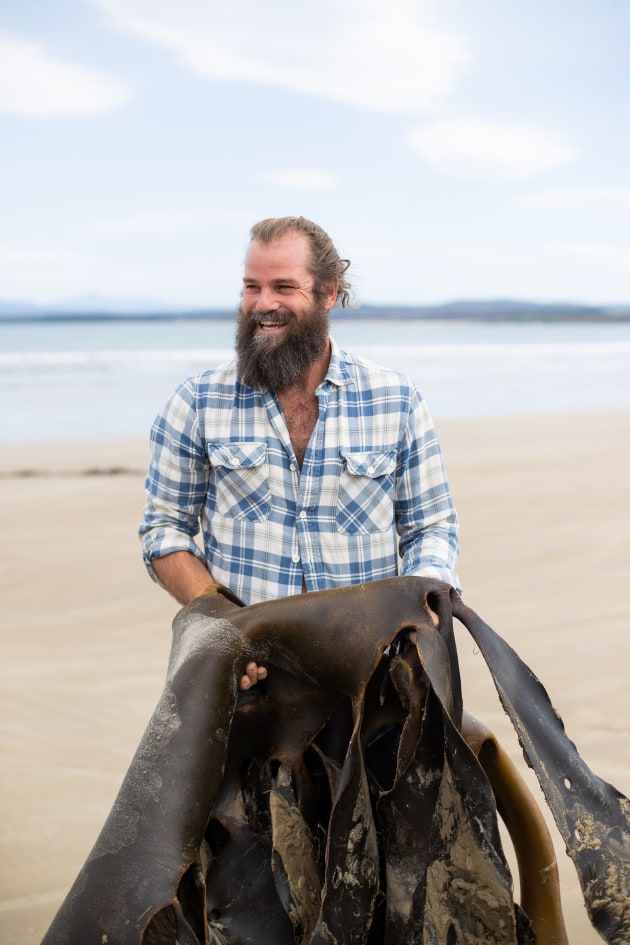Australia’s largest integrated cattle and beef producer Australian Agricultural Company (AACo) is partnering with seaweed manufacturer Sea Forest to reduce methane emissions from its cattle.

While initially a pilot with just 81 wagyu cattle, co-funded by Meat and Livestock Australia, Sea Forest CEO Sam Elsom said it will set the standard for the global use of seaweed in livestock feed.
AACo CEO and managing director Hugh Killen said the trial is an important step to verify if the research is accurate. AACo is the oldest continuously operating company in Australia with operations across 6.4 million hectares in Queensland and the Northern Territory, or roughly one per cent of Australia’s land mass.
“The ability of asparagopsis to reduce enteric methane emissions is widely known, but the technology is yet to be tested in Wagyu and over 300 days in a non-laboratory environment.
“We have been focused on reducing our emissions intensity for several years and are now tackling our methane emissions head on, with a view to expanding the use across our business,” said Killen.
With 14 per cent of global emissions coming from methane, it is the world’s second largest greenhouse gas producer after CO2 but produces 34 times more heat.
Seaweed has been receiving increased attention due to its high potency of reducing emissions. In August, the Australian Sustainable Seaweed Alliance (ASSA) was launched to coordinate the establishment and growth of sustainable seaweed aquaculture. Data from AgriFutures outlined the Australian seaweed industry has the potential to reach $1.5 billion in the next 20 years.()
In April, Sea Forest raised $34 million with major players Macquarie Infrastructure and Real Assets and PGA Investments investing in a business committed to reducing greenhouse gas emissions in agriculture through the seaweed asparagopsis.
In October, it received $675,000 in funds from the Australian Manufacturing Growth Centre (AMCG), as the seaweed producer aimed to become a market leader and global supplier of the oil-based seaweed high bromoform asparagopsis. The funding helped grow the company’s 1800-hectare sea lease in Triabunna, Tasmania for marine farming, harvesting, and processing operations.
Meat and Livestock Australia managing director Jason Strong said the association was doubling its commitment to environmental projects.
“We're involved as one of the founders of Asparagopsis licensing and the commercialisation of the product and will support demonstration programs with the product going forward,” he said.
The trial will use Sea Forest’s Triabunna facility’s hatchery, which is the country’s largest marine lease growing asparagopsis seaweed and possesses a processing plant to convert seaweed into products which reduce carbon emissions.

Livestock carbon emissions are expected to be cut by 400,000 tonnes annually, with Sea Forest planning to produce 7000 tonnes of seaweed per year.
Sea Forest CEO Sam Elsom said: “We commend AACo for recognising the role it can play in helping reduce emissions and focusing on sustainability and the environment.
“We are looking forward to working with AACo to expand the use of our seaweed to all aspects of its cattle production process to achieve important sustainability goals.”
Figures from the ASSA indicated that seaweed could reduce greenhouse gas emissions by 10 per cent in the coming decades and acknowledged commercial cultivation of asparagopsis as the major next step.
Killen added: “Only through trials like this can we fast track the application across the broader industry and make the changes that we, along with our customers and the public expect.”









